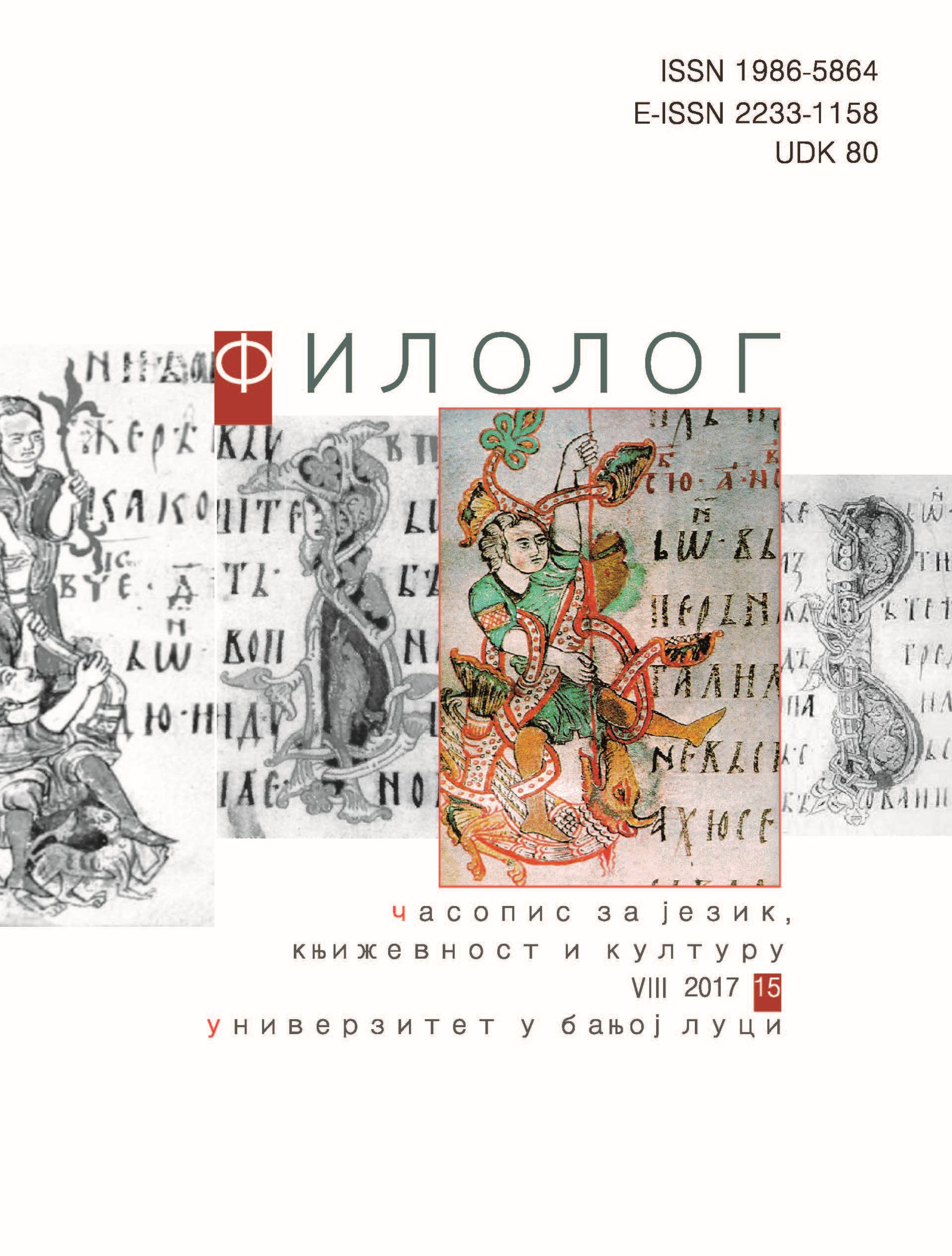Džojs kao čitalac svojih tekstova ili koncept obrnutog paterniteta
Joyce as His Own Reader or the Concept of a Reversed Paternity
Author(s): Vanja D. Vukićević GarićSubject(s): Studies of Literature, Comparative Study of Literature, Other Language Literature, Philology, Theory of Literature
Published by: Филолошки факултет Универзитета у Бањој Луци
Keywords: authorial position; recipient and revisionist; intertextuality; self-referentiality; text’s autonomy; parental relation;
Summary/Abstract: Drawing on the phenomenological interconnectedness of the process of reading and the process of writing, this paper examines the impact a text has on its author through Joyce’s four masterpieces, pointing to the multiple potential of his role as a recipient and reviser of his own texts. In spite of the fact that he has always been regarded as a highly intentional author who exerted an almost sadistic control over his texts, Joyce has also proven to be a highly receptive reader of his own writings, building new creative procedures upon the old ones, as the stylistic pastiche of his fiction points towards subsequent reconsiderations of his previous practices and narrative choices. Underlining the intertextual and intra-textual relations between Joyce’s texts and parts of the same text, this analysis will focus on the traces of reading before and after writing, which stand as a clear evidence of the evolution of the authorial position, resulting from the reception of one’s own work. Joyce’s self-referentiality is evident both on the thematic and the structural level: it is realised through the maintaining, rejecting and repeating of numerous narrative elements.The notion that text changes, produces and gives birth to its author is also illustrated through consideration of the text’s autonomy and the impossibility of definite readings, which reverses the usual concept of paternity, relevant for Joyce, since the author turns out to be not only the authoritative father who controls his writing, but also a text’s offspring, ready to grow and be shaped differently for future texts. At this point, drawing on Barthes’s assumptions expressed in The Pleasure of the Text (1975), the aim of this article will be to show that Joyce’s act of writing and critical reading always oscillates between the known and the unknown, readerly and writerly, determinable and indeterminable, manifest and mysterious form of interaction with the text, which renders his fiction permanently intriguing and relevant.
Journal: Филолог – часопис за језик, књижевност и културу
- Issue Year: 2017
- Issue No: 15
- Page Range: 290-306
- Page Count: 17
- Language: Serbian

